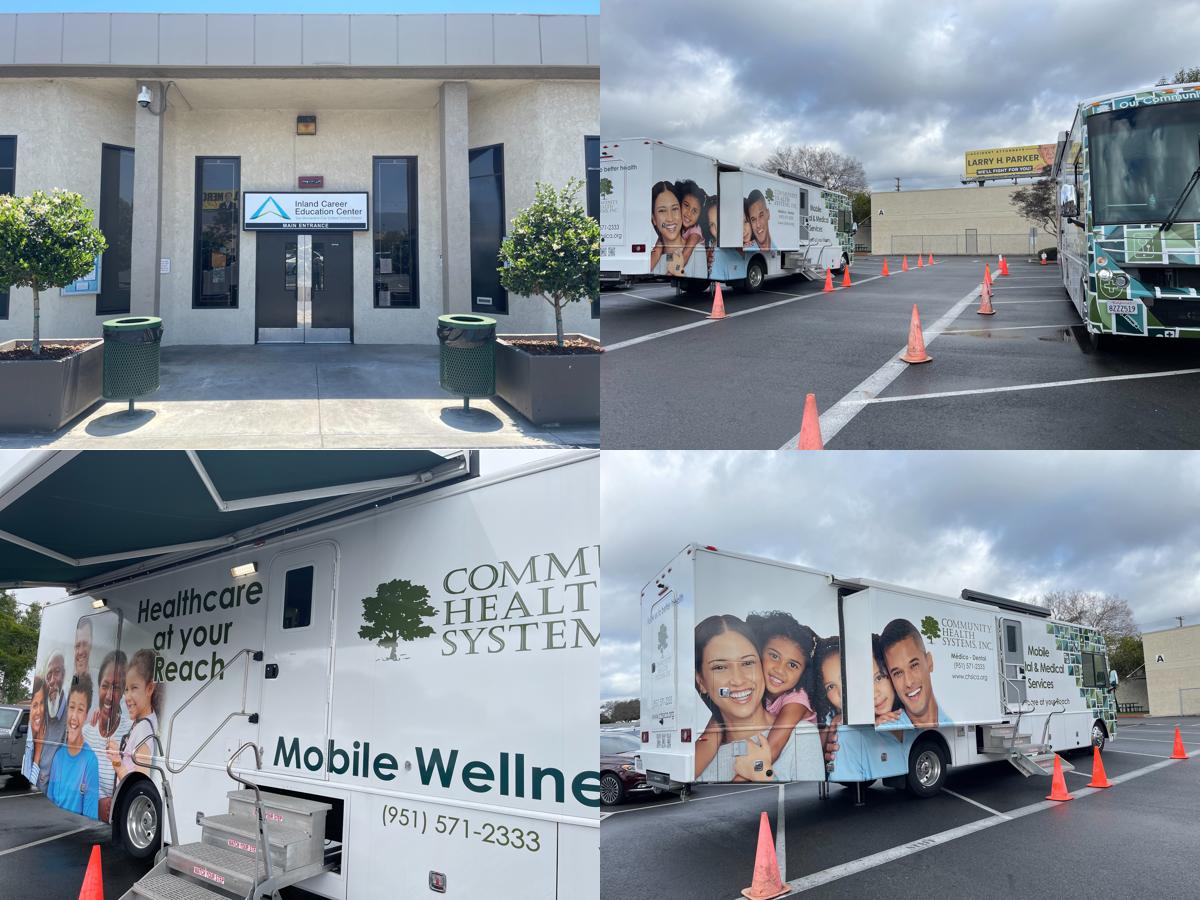Mobile Health Services Initiative: Expanding Access and Support for Adult Learners
Submitted By: Raul Pedraza Jr.
San Bernardino Community College District Consortium
Website: https://icec.sbcusd.com/student-services/counseling-center
Type of Practice: Learner Transition
Program Area(s): ABE / ASE, ESL / EL Civics / Citizenship, CTE / Workforce Prep / Pre-apprenticeship, Adults with Disabilities, K12 Success
Region: Inland Empire
Consortia Involved: San Bernardino Community College District Consortium
The Program of Practice
ICEC identified a consistent pattern of students struggling with physical and mental health challenges, leading to absences, withdrawal, or lack of academic progress. Feedback from students and staff, coupled with internal data, revealed that many students—particularly foster youth, adult learners reentering education, and immigrant families—lacked access to reliable, affordable health services. Traditional referral models often failed due to transportation limitations, fear, or lack of follow-through. The Mobile Health Services Initiative was developed to close this gap by bringing services directly to students in a familiar and trusted setting.
The Response
ICEC responded with a two-tiered approach. First, they partnered with Community Health Systems to offer on-campus mobile medical and dental services, reducing logistical barriers and addressing immediate health needs. Second, mental health services were made available virtually through Community Health Systems and in person via referrals to Loma Linda University’s Resiliency Clinic. These services are actively promoted by the Counseling Department and Student Transition Center, who introduce the services during orientation, provide ongoing reminders, and conduct warm handoffs to ensure students follow through with accessing care. These teams also track utilization and coordinate follow-up support.
The Unique Features of the Program
This initiative stands out in the adult education field for its integration of mobile health delivery and multi-access mental health services, tailored to the unique needs of adult learners. The warm referral process, led by ICEC’s Transition Center and Counseling staff, ensures students are not just referred—but genuinely supported—throughout the process. The program’s ability to serve both students and their families further expands its reach and community impact.
The Outcome
Key measurable outcomes include:
A 7% increase in student persistence in High School Diploma and ESL programs since program launch.
Over 300 individuals served by the mobile medical and dental units for the 2024/25 School Year.
More than 200 hours of therapy provided to students through both virtual and in-person models.
ICEC counselors recorded over 1,500 touch points and delivered more than 750 hours of social, emotional, and wellness-related support.
Increased student satisfaction, as reflected in survey results where health access was cited as a key support service.

